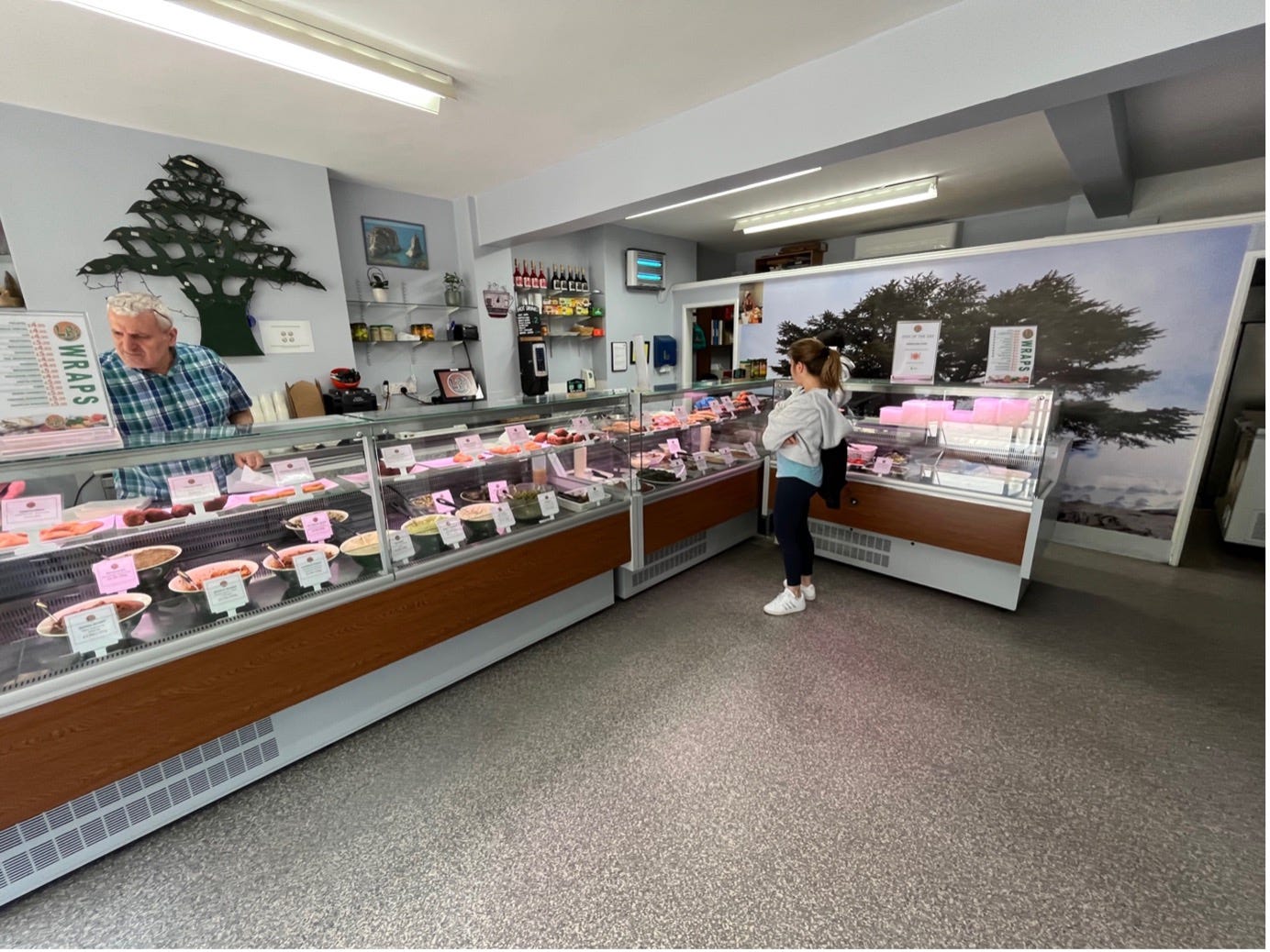EdTech: Pioneering the Future of Education
In today’s modern era, technology’s imprint is increasingly prominent, reshaping all aspects of our lives, and carving a new trajectory for the learning process. This exciting convergence, known as Educational Technology (EdTech), has been a transformative force, redefining how students learn, and teachers instruct. Its scope extends from physical hardware to diverse software applications and digital platforms, becoming integral to every step of the learning journey.
EdTech encompasses an array of digital resources—both online and physical—intended to optimise students’ academic potential. The journey of EdTech has seen it evolve from simple facilitative tools to intricate platforms that respond dynamically to individual learning needs. There’s a symbiotic relationship between technology, artificial intelligence, and education, with the potential to substantially enhance the quality of teaching and equalise opportunities for disadvantaged students. Through animated videos, specialised teacher feedback, and research in cognitive science, EdTech provides tailored and personalised education, outperforming traditional one-size-fits-all classroom instruction.
Despite these advancements, a disconnect remains in EdTech’s adoption by policy leaders. They often favour traditional educational methodologies, neglecting the integration of innovative solutions that could rejuvenate our learning systems. The inadequacies of this approach were glaringly revealed during the pandemic when distance learning became a necessity rather than a choice. Yet, despite the lessons drawn from this experience, a safety net for such emergencies needs to be more conspicuously present in many policy decisions.
Recent policy shifts have increased student responsibilities and expectations, demanding greater academic accomplishments without providing the requisite resources for achieving them. The augmentation of grade boundaries, the proposal to mandate Mathematics until age 18, and the resulting additional workload and pressure on students and teachers alike point to an unmet need for extra support, especially for students from working-class backgrounds.
II. Why am I EdTech passionate? Personal Journey: A Testament to the Power of EdTech
My academic journey serves as a vivid testament to the transformative impact of EdTech. As an A-Level student from a sixth form with an average grade of D+, no GCSEs at the onset of my A-levels, and having recently moved to the UK, my academic prospects seemed dim. My first year was a daunting experience characterised by consistently low grades and growing concern amongst my teachers regarding my prospects of passing the final exams.
The turning point came with a scholarship for students on Free School Meals from Uplearn, an online learning platform that leverages AI and cognitive science. This opportunity transformed my academic trajectory, enabling me to achieve A*A*A at A Levels and be the first to get an offer from the University of Oxford in my sixth form since 2017. Without a shadow of a doubt, I attribute this achievement to the invaluable technological assistance provided by Up Learn and other EdTech tools I’ve used.
Inspired by this personal experience, I recently submitted a motion on behalf of the Oxford University Student Union to the National Union of Students (NUS). This motion urged the NUS to lobby the government to prioritise investment in education technology, particularly emphasising those utilising AI’s power. The objective was to encourage the government to develop and implement technology-based learning resources and programs that provide a more personalised teaching experience, alleviate teacher workload, and allow students to learn at their own pace, both within and outside school.
While my passion for EdTech continues to grow, it’s tempered by an increasing sense of frustration with the government’s traditional approach to educational reform. The overall strategy focuses on raising funding for traditional physical resources and occasional limited curriculum reform. While these efforts are necessary and can yield incremental improvements, they fail to substantially benefit students to the necessary level.
On the rare occasions where government funding is seen, there’s a persistent trend to invest millions in conventional teaching methods with the hope of elevating pupil performance and mitigating educational inequality. While significant, modern educational technological tools should complement these traditional methods and funding. We must advocate for equal access to these resources for all students, as their effectiveness has been demonstrated for those fortunate enough to access them.
Currently, most initiatives to expand access and advancement in EdTech arise from the private sector. However, public support could greatly amplify these efforts, leading to significant strides in EdTech. For instance, only six individuals out of the 8,000 civil servants in the Department for Education were tasked with the responsibility for technology in schools at the onset of the pandemic – a clear indication of the gap that needs to be addressed.
The fundamental transformation in education will come from bridging the divide between traditional and technology-enhanced learning. This effort demands the full support of both the public and private sectors.
III. Personalised Learning through EdTech: A Closer Look
The Imperative Role of EdTech
With the capability to transform the academic terrain, EdTech is an essential tool to enhance outcomes, dismantle educational inequalities, and equip students for a future steeped in technology.
Personalised Benefits: The Microcosm of EdTech
A fundamental benefit of EdTech lies in the improved engagement and motivation it engenders in students. Through interactive and visually appealing content, learning methods become more accessible and enjoyable. A critical aspect of this engagement is the flexibility that EdTech platforms provide – learning can occur anywhere, anytime, bypassing the confines of traditional school hours.
For instance, AI chatbot EdTech solutions like Khanmigo, developed by Khan Academy and powered by ChatGPT 4, offer unprecedented support to students. They guide through maths problems, help debug code, and even engage in constructive debates. Such 24/7 assistance is a revolutionary leap from conventional teaching methods. By assisting teachers with administrative tasks, AI gives educators more time to focus on their primary responsibility: student growth and learning.
Another standout feature of EdTech is its ability to promote personalised learning, leveraging cutting-edge technology like AI and cognitive science to create an adaptive learning environment that dynamically adjusts to the unique needs of each student. It tailors content to a student’s strengths and weaknesses, allowing learning at a comfortable pace. This shift from a one-size-fits-all teaching approach to a more individualised one enhances the learning process and improves outcomes.
Take, for instance, Up Learn—an innovative online platform that blends AI and cognitive science to help students achieve stellar grades at the A-Level. Remarkably, 97% of learners who complete a course on Up Learn secure A*-A grades. This platform doesn’t merely supplement conventional resources such as textbooks and tutors but provides a comprehensive learning suite to ensure mastery of the subject as efficiently as possible.
Up Learn utilises short animated videos to demystify complex topics, providing clear, engaging explanations. To help students refine their skills further, it offers opportunities for essay feedback from subject specialist teachers. But what truly sets it apart is its adaptive learning capability. It harnesses the power of AI and the insights from cognitive science research to pinpoint the areas where a student struggles. Instead of generalised teaching, Up Learn targets these problem areas specifically, ensuring that each learner’s issues are meticulously addressed.
This targeted, individual-centric approach, a far cry from traditional classroom teaching, proves more effective in facilitating learning. It emphasises how the adoption of EdTech could transform learning, making it not just more engaging, but also more meaningful and effective.
Broad-based Benefits: The Macrocosm of EdTech
EdTech’s potential reaches far beyond enhancing individual learning experiences—it holds the power to create lasting, transformative change on a much broader scale. Its capacity to provide quality education to learners in remote or underprivileged areas, both within the UK and globally, is unparalleled, a fact thrown into stark relief during the COVID-19 pandemic.
However, the pandemic also revealed a stark digital divide among educational institutions. The readiness to transition to online learning varied drastically, with deprived areas often left behind. According to the Sutton Trust survey, only 23% of schools in the most deprived areas had an online platform ready to receive students’ work during the lockdown. This compared poorly with 60% of private schools and 37% of state schools in the most affluent regions, exposing the deep-rooted disparities in our educational landscape.
To redress this imbalance and equip all schools for potential future crises, increased investment in EdTech across the UK is imperative. Not only will it facilitate a smoother transition to online learning when required, but it can also support the integration of a blended learning approach—combining traditional face-to-face instruction with online learning. This ensures educational continuity, preventing major student learning disruptions during crises.
IV. A Vision for the Future: The Unleashed Potential of EdTech
Fostering Innovation and Expanding Growth of EdTech
Drawing from the considerable strides EdTech has made, industry experts foresee a surge in AI-driven, AR-enhanced, and VR-integrated educational technology products. This upswing in innovation, backed by the anticipated market expansion, portends a transformative shift in the educational landscape.
As education transitions towards more student-centric, engaging, and interactive models, we stand at the precipice of significant advancements in educational attainment and the cultivation of lifelong learners. However, these potential gains hinge on creating an environment that encourages innovation and adoption of these tools, necessitating accommodative policies, sustained investments, and effective partnerships between educators, policymakers, technologists, and students.
Shaping Policies for a Forward-Thinking Future
Seizing the full potential of EdTech calls for a unified approach involving government, private sector, and educational institutions. Government public policy should focus on making optimal use of both existing and emerging technologies.
Building a comprehensive, AI-driven, adaptive learning platform could enable the government to provide the population with essential life skills and diverse courses, given the substantial funding at its disposal, unlike current private platforms, which typically concentrate on primary subjects such as maths, English, and sciences. A government-funded and owned platform could diversify its offerings, include a vast array of subjects, and make use of the enormous amount of resources available to government departments. Courses ranging from KS2, GCSEs, and A-levels, as well as digital skills for the rest of the population.
Empowering educators is another crucial element of this vision. Comprehensive training should be provided to teachers to effectively incorporate EdTech into their teaching practices, amplifying its efficiency, and enhancing student learning experiences.
Local initiatives like the “EdTech in the Cloud project“, a collaboration between the OXR Hub at the University of Oxford, Oxfordshire County Council, and Amazon’s Web Services, exemplify one possible vision of forward-thinking public policy. This project aims to mitigate educational inequalities by exploring how scalable immersive technologies could enrich learning experiences in secondary schools.
Eradicating Inequalities in EdTech Access
A pressing issue warranting urgent attention is the inequality in EdTech access. The technologies mentioned are already available. They’re not based on an imaginary future and are used by many private schools nationwide to improve their students’ performance. Platforms like Uplearn, although highly effective, carry a price tag that many across the UK find prohibitive. While scholarships are available for some students, we need to aspire to a future where access to such advanced technology is universal.
To bridge this digital divide, it’s essential for the government to invest in developing and implementing technology-based learning resources and programs, as mentioned above. A government online learning platform will mean that all students, whether private or state educated, will be able to access the same level of high-quality learning.
This should entail equipping every child with a computer or laptop for online content access and infusing technology into the curriculum.
It is simple. These resources should be freely available to all students, ensuring that the transformative power of EdTech is not a privilege for a few but a right for all.
Conclusion: Harnessing the Power of EdTech
EdTech has already demonstrated transformative power in reshaping education, and the future of this industry looks even more promising. I stand as a testament to the potential of EdTech to overcome educational barriers, create equal opportunities, and elevate academic performance. My journey, as well as that of many students worldwide, speaks volumes about the efficacy of EdTech tools and their immense potential to transform the education sector.
The success of this technological revolution relies heavily on its accessibility. We must ensure that the benefits of EdTech reach every student, irrespective of their socio-economic background. A proactive role from the government is crucial in this regard, investing in public initiatives and collaborations to promote technology integration in our education systems.
We must also strive to make teachers active partners in this journey. Only then can we ensure that the promise of EdTech is fully realised, optimising our educational infrastructure to prepare our learners for a digital future.
As we navigate the 21st century, it is clear that traditional approaches to education need to evolve and adapt. Technology is no longer a luxury, but a necessity that has the potential to democratise learning and tear down walls of inequality. Let us leverage the power of EdTech to make quality education a universal right, not a privilege.
EdTech, for me, is more than just a passion—it is a mission, a calling, and a vision for an equitable, accessible, and transformative future of education.








